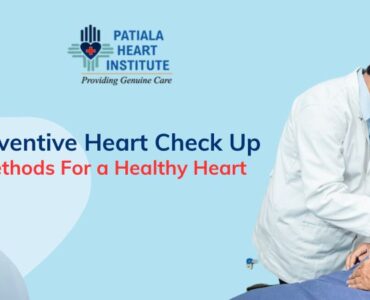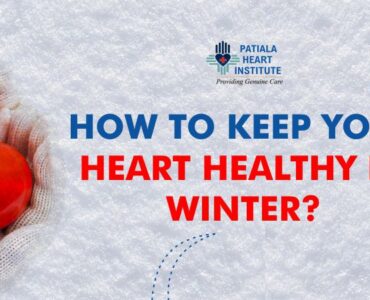Introduction
Among so many severe diseases in the world, heart disease still ranks in the top few positions as the main reason for the death of many patients across the world. Heart Blockage, also referred to as Coronary Artery Disease (CAD) is the widely known reason for the health epidemic.
The situation of CAD occurs when plaque piles up within the coronary arteries, which reduces the space and limits blood supply to the heart. This may result in chest pain or angina, shortness of breath, and even heart attacks in some cases.
The method of treating heart blockages has undergone significant improvements with time. Earlier, it was treated with invasive procedures such as bypass grafting. But now things have totally changed and people are moving towards non-surgical ways that are not only effective but also safer and more convenient.
These new treatments are revolutionizing patient lives—particularly those who cannot or do not want to undergo surgery.
Let us take a look at the five innovative non-surgical treatments getting the headlines and attention and saving hearts in this era.
Lifestyle Changes for a Healthy Heart
Dietary Changes
The journey of a healthy heart begins in our kitchens. Moving toward a healthy diet creates drastic changes in your overall health and leads to a healthy heart. Try eating fruits and vegetables more.
Add Whole grains and lean fat such as fish, to your diet. Adding oats and flaxseeds to your diet is a major step towards good health. Make sure to reduce saturated fats, trans fats and cholesterol-rich food.
Exercise Regularly
Physical workout is the foundation of non-surgical heart blockage treatment. Plan to start aerobic activities such as brisk walking, swimming, and cycling at least 2-3 hours a week. Add resistance training to your routine to strengthen the heart and muscles. Consistent body movement leads to better circulation and reduces blood pressure, cholesterol, and stress.
Stress Management Techniques
Stressing over something for a longer period adversely affects your heart health. To overcome that, try mindfulness, meditation, and deep breathing techniques. It decreases cortisol (stress hormone) and the risk of heart disease.
Practice relaxation techniques every day to keep emotions and cardiovascular systems in balance.
5 Effective Non-Surgical Treatments
Pharmaceutical Solutions
Cholesterol-Altering Drugs
Medicines always play a critical role in retarding plaque accumulation. Statins are the standard for decreasing LDL cholesterol and stabilizing any plaques.
In 2025, new-class lipid-lowering therapy, and bempedoic acid analogues, will provide more individualized and effective control.
Antiplatelet and Anticoagulant Drugs
These pills lower the risk of clots in heart arteries that may protect from heart attacks. Typical choices are aspirin and a few other, and newer drugs. Careful balance is essential to limit bleeding hazards while maximizing gains.
Blood Pressure Medications
Blood pressure management is vital to lowering arterial pressure. ACE inhibitors, beta-blockers, and calcium channel blockers are used to treat hypertension. High-tech combination therapy and AI-aided dose titration are this year’s game-changers.
Enhanced External Counterpulsation (EECP) Therapy
Mechanism of EECP
EECP is a popular and painless procedure that boosts blood flow and develops new circulatory pathways. Cuffs encircling the legs inflate and deflate in rhythm with the heartbeat. The process stimulates the formation of collateral vessels, which bypass obstructed arteries.
Advantages and Effectiveness
EECP has seen quite positive outcomes in clinical trials. It decreases the frequency and severity of angina symptoms. Furthermore, it enhances exercise capacity and overall quality of life, usually with long-term benefits of months or years.
Patient Eligibility and Factors
It suits best to patients with chronic angina, those who cannot be operated on, or those who want to get additional therapies. EECP is safe but it is not recommended for patients with uncontrolled high blood pressure, bleeding, or some heart valve disease.
Percutaneous Coronary Intervention (PCI) with Enhanced Techniques
Balloon Angioplasty and Stenting
During PCI, a catheter is employed to enlarge narrowed arteries. Lately, drug-eluting stents (DES) with biodegradable elements are the norm, which minimizes long-term complications. There are a few new robotic-assisted techniques that provide more accuracy and quicker recovery.
Orbital Atherectomy
For tough, calcified blockages, orbital atherectomy is an excellent choice. A diamond-coated crown sands plaque away without damaging healthy tissue. It provides an improvement in results over standard angioplasty for severe cases.
Regenerative Medicine and Gene Therapy
Stem Cell Therapy
Stem cell therapy is a very popular known method to treat various diseases and the heart disease is one of those. Stem cells are injected into affected heart tissue that have the ability to regenerate blood vessels and enhance cardiac function. Clinical trials demonstrate impressive success in alleviating the symptoms of heart failure.
Gene Editing Methods
To transform heart disease at the molecular level, you will need CRISPR technology. CRISPR technology is used to edit genes linked with high cholesterol and arterial inflammation. Although it is in the trial stages now, gene editing promises the possibility of lifelong cures for inherited heart conditions.
New Diagnostic Technology
Advanced Imaging Technologies
Improved diagnosis directly leads to improved outcomes. Cardiac MRI (CMR) captures a clear picture of heart tissue and blood flow without the use of radiation. Moreover, Non-invasive scans detect early blockages and tailor treatments for individual patients.
Artificial Intelligence in Cardiology
Artificial intelligence has revolutionized the treatment of heart disease. AI-based systems review devices, ECGs, and imaging data to identify issues earlier, that helps in early treatment. In upcoming years, AI technologies will start recommending ideal drug regimens and lifestyle strategies for individual patients, depending upon their condition.
FAQs
Q1. Can we cure heart blockage without surgery?
Ans. Yes, it is curable through lifestyle modifications, changes in diet, the right medications, EECP treatment, PCI, and new gene/stem cell therapies as mentioned above.
Q2. Does EECP have a success rate?
Ans. EECP has shown a good improvement in the case of heart blockages. It suits best patients who are unfit for surgery.
Q3. Are there any risks associated with non-surgical heart treatments?
Ans. It is generally considered safe, but each therapy comes with considerations. Do consult a cardiologist for personalized care.
Q4. How do lifestyle changes impact heart blockage management?
Ans. A heart-healthy lifestyle can halt disease progression, improve symptoms, and even reverse minor blockages.
Q5. Is gene therapy widely available for heart disease patients?
Ans. Not yet. Gene therapy remains experimental but will become mainstream within the decade.
Conclusion
In this era, a patient with heart blockage has more hope and choices than ever. From lifestyle adjustments and new medications to groundbreaking therapies such as EECP and gene editing, the future of cardiology is bright—and it’s here now.
At Patiala Heart Institute and Multispeciality Hospital, we blend experience with compassion, providing the finest non-surgical interventions specifically designed to meet the needs of every patient. Whether you’re seeking to prevent heart disease or treat an ongoing condition, our staff is committed to helping you navigate your heart health journey—every step along the way.







